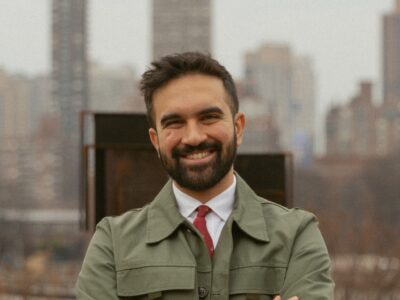
The U.N. Summit on Climate Change is underway today in NYC with nearly 100 heads of state in attendance to address carbon emissions and climate change. Several leaders — including the president of the Maldives and the prime minister of Japan — offered impassioned pleas to take action and make strong commitments to reducing carbon emissions.
The summit, convened by Secretary-General Ban Ki-Moon, is intended as a catalyst for momentum towards real and concrete resolutions at the Copenhagen Summit, scheduled for December. Whatever treaty is agreed upon there will supplant the Kyoto Protocol when its first commitment period expires in 2012.
Several leaders of the world’s largest carbon-emitting nations — including Barack Obama, Nicolas Sarkozy, Hu Jintao, and Yukio Hatoyama — made addresses this morning during the opening session. It’s important to pay attention to what these leaders have committed to today, since their statements at the U.N. are seen as foreshadowing for Copenhagen.
Hatoyama, the new Japanese Prime Minister, vowed cutting emissions on September 7. He reiterated that pledge today, promising to cut greenhouse gas emissions by 25 percent in the next 10 years from 1990 levels; this marks the most aggressive stance towards climate change by any developed nation. This position is 16 percent more ambitious than the targets set with the Kyoto Protocol 12 years ago.
Sarkozy suggested immediately establishing formal institutions to support and transfer sustainable technologies and financing to developing nations, to tax polluting industries, and to establish carbon taxes covering Europe. He even proposed creating a single world environment organization to manage the outcomes of Copenhagen and that developed nations meet mid-November to “table concrete proposals”.
Still, the media seems to be focusing largely on the American and Chinese commitments — the two largest carbon-polluters (each accounts for 20% of global carbon emissions) — and their positions continued to be ambiguous.
China’s statements are particularly disappointing since a major announcement had been expected. Though some are praising China’s important commitments — such as “planting enough forest to cover an area the size of Norway and generating 15 percent of its energy needs from renewable sources within a decade” — China made no concrete specifications to how much it would reduce carbon emissions. As in the past, China is reticent to forsake economic growth for carbon emission reduction commitments.
Obama’s speech has also been analyzed and re-analyzed; indeed, while Obama even linked China to America as rich nations that needed to take the lead in addressing carbon emission reduction, neither leader provided any numbers. And, according to Obama’s top climate negotiator, Todd Stern, America’s commitment is entirely contingent on China’s.
As the world’s largest greenhouse polluter, the U.S. has taken little action on climate change and the Senate is currently debating the Waxman-Markey bill that would reduce emissions to only 6 percent below 1990 levels — which fall far short of the 20 to 30% reduction below 1990 levels Europe has committed to. It is unlikely the bill will get the attention it deserves until the healthcare debate is resolved, well after the Copenhagen conference in 75 days.
Tonight’s speech by the Danish Prime Minister is being eyed with apprehension. There’s some suspicion he might water down the conference in Copenhagen from treaty-status — which is legally-binding for all signing nations — to “a political declaration.” Hopefully, peer pressure from other European nations will prevent this.
While today was an important watershed in addressing climate change, we continue to look forward to the Copenhagen conference. As Ban Ki-Moon said, “Failure to reach broad agreement in Copenhagen would be morally inexcusable, economically shortsighted and politically unwise. The science demands it. The world economy needs it.”
But Yugratna Srivastava, 13-year old youth delegate from India and member of the UN’s youth environmental conference board, probably put it best to the summit today when she said, “If not here, then where? If not now, then when? If not us, then who?”
related internet links:
Climate Progress’s transcript of Obama’s speech:
http://climateprogress.org/2009/09/22/obama-un-speech-climate-change/#more-11630
2009 summit on climate change homepage:
http://www.un.org/wcm/content/site/climatechange/lang/en/pages/2009summit
UN video archive of this morning’s opening statements:
http://webcast.un.org/ramgen/ondemand/specialevents/2009/se090922pm1.rm
BBC’s coverage of the conference:




[…] Over 100 heads of state met at the U.N. in New York City to build momentum for an agreement in Copenhagen. Nations’ statements were met with a […]
Great distillation of this important event. Thanks for the information.